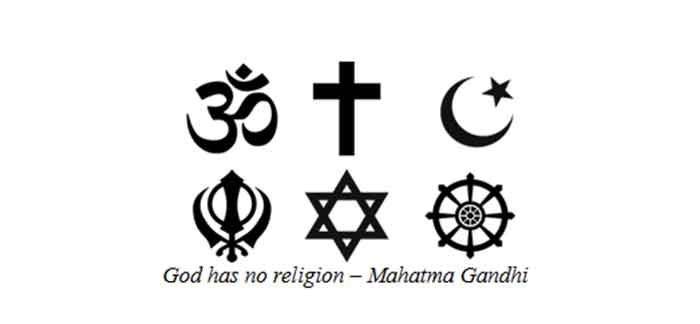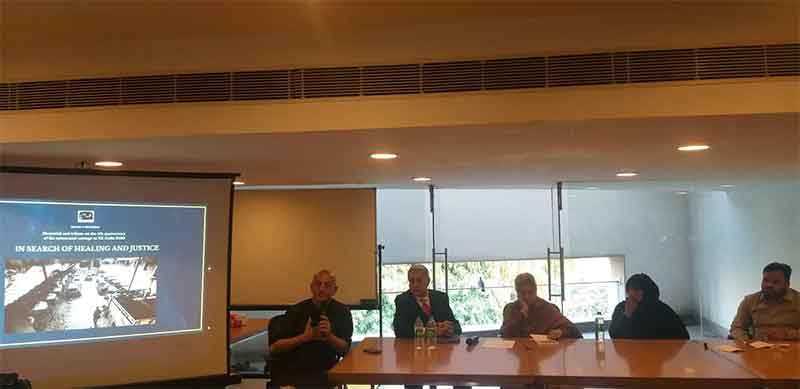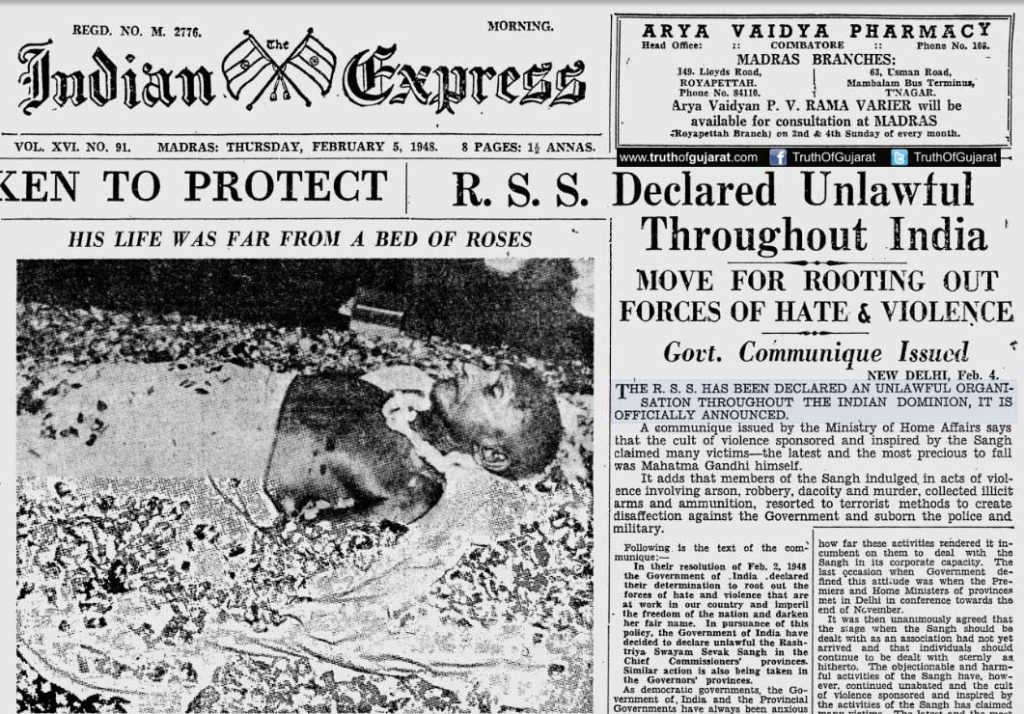
India observes communal harmony week from 19th to 25th November. This was started in 1992 by National Foundation for Communal Harmony (NFCH), an autonomous body under Ministry of Home Affairs. The aim of the week is to promote fraternity, maintain peace & communal harmony, and to run a fundraising campaign for children affected by violence.
However, majority do not know anything about communal harmony week. Let alone celebrating the week in its true spirit, currently some states are even thinking of making laws against inter-religion relationships. We are thinking of a law against love and for hate? What kind of nation are we creating?
Article 25(1) of the Indian Constitution states that all persons are equally entitled to freedom of conscience and the right to freely profess, practice, and propagate religion. Article 19 gives the right to freedom of speech and expression. The preamble of the Constitution guarantees the fundamental right of liberty of belief, faith and worship and of fraternity about assuring the dignity of an individual.
All the religious texts talk about the existence of one God, the sacred path of truth, and living in harmony and dignity with fellow humans. One gets excellent inspiration from Mahatma Gandhi on communal harmony. To Gandhi, Vasudhaiva Kutumbakam from Upanishads was the same as the idea from Quranic belief that Allah, the beneficent and merciful, was the creator. He would dispense justice based on deeds and not based on the professed faith of each person. The same goes for the idea from Christian faith that the God’s benediction was for all. Gandhi said, “The essence of true religious teaching is that one should serve and befriend all. I learnt this in my mother’s lap.”
All religious beliefs chant of one God. Then, what difference it makes if God is worshiped differently? Some people may worship by going to Temples, other may go to Mosque, or Church, or Gurudwara. All these places of worship are multiple homes of the one God. Those who listen to the voice of reason will not object.
However, India has regularly struggled with communalism, resulting in violent attacks and destruction of places of worship. Time and again, we come across multiple instances of discrimination against people based on religious faith. Recently our country has seen some incidents that seek to disturb communal harmony.
The arrest of 48 years old Faisal Khan after a few days of reading Namaz at a temple was one such incident. He invested his life to strengthen communal harmony. He took 84 Kos braj parikrama for the preservation of peace and communal harmony. Faisal has also established ‘Sabka Ghar’ dedicated to those who sacrificed their lives as victims of some discrimination. It is a living example of communal harmony where people of different religious faiths come and live together.
In September, Christian minority groups from villages in the Kondagaon district of Chhattisgarh were attacked by a Hindu nationalist mob after they refused to apostatize their faith in Christianity. Around 100 Christians were displaced, and 16 houses were destroyed in the presence of police. However, minority Christian groups have recently returned to the village with legal protection, but the feeling of fear remains when people are not allowed to freely practice their religion.
Another incident is about a plea at the Mathura district court that seeks to remove 17th century Shahi Idgah mosque adjacent to the Krishna Janmabhoomi. The subject of plea is unconstitutional within the Places of Worship Act, 1991. For centuries, Shahi Idgah Mosque and Krishna Janmabhoomi temples have stood adjacent to each other, bearing witness to Hindu-Muslim harmony. Any proceedings in such respect could set a dangerous precedent before the judiciary, overwhelming the courts with numerous disputes between temples, mosques, churches, and other places of worship.
The above instances not only indicate a lack of understanding among a few social groups about the aspects of peace written in all religious texts but also indicate a lack of understanding about being human.
At the basic level, the difference between a Hindu, Muslim, Sikh, Christian, or person belonging to any other religion is the different household in which a person is born. The family of birth generally leads to the imposition of religious values of the family. Nature doesn’t create any differences, but nurture does. John Rawl’s idea of the veil of ignorance is a powerful tool to understand the unreasonableness of social hierarchies. This idea considers individuals as rational, free, and morally equal beings who have a lack of knowledge about their social status.
It may be questioned if some people acting as oppressors in religion and caste-based violence are doing that out of their volition or are being forced? Even if they are doing so out of their own discretion, what has led to such thinking that they can oppress someone or force another person to change his/her religion?
Prof. Mathur of IIMA says that most often the thinking of oppressors has been shaped by the prevailing social norms that maintain the status quo benefiting a certain social order. People do oppressive things to others because of how they have been disciplined by social norms. This is often part of the hidden curriculum of the home, family and school, the earliest social institutions in which an individual is nurtured.
Father Anand Methew, who has led multiple campaigns on communal harmony and is the convener of Jan Vikas Samiti, Varanasi, says, in the name of nationalism, xenophobia, or strangers’ fear seems to be dominating India. We need xenophilia, or the love of strangers, or Vasudhaiva Kutumbakam for the revival of the nation’s values.
In conclusion, it would be better to propagate love among communities and not hatred to get free from class or religion level hierarchies. This can create an equal world for everyone to live a life of prosperity and dignity. Let’s free ourselves from consent manufacturing propaganda and power of social norms benefiting the current social order. This will make India a peaceful country free from communal violence.
Shreshth Virmani is a student of IIM Ahmedabad. He believes in equality of all communities and dreams for a better India based on Gandhian Principles. The views expressed are personal and are the part reflections of the 2nd year elective on Transformational Social Movements taken by social activist, Prof. Sandeep Pandey.
SIGN UP FOR COUNTERCURRENTS DAILY NEWSLETTER














































